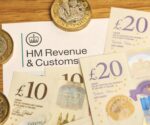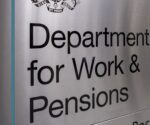HMRC demand letters for people with £10,000 in savings account | Personal Finance | Finance
People with just £10,000 in savings are being told they could face an unexpected tax bill letter from HM Revenue and Customs (HMRC) this year. HMRC is able to automatically detect interest on savings generated by your bank account and if you tip over a certain threshold, you will automatically be sent notice of an extra tax bill.
With the new tax year 2025-26 now well underway, the UK’s tax office has been busy sending out letters to people urging them to register for self-assessment or asking them to pay extra tax. Because your entire previous financial year is now complete, HMRC is assessing people’s final financial situations and issuing tax bills to those who it finds owe money in tax on savings accounts. Such information is automatically reported to the taxman by your bank or building society accounts unless it is in a Cash ISA, which is protected from tax.
The Personal Savings Allowance rules mean you can generate £1,000 per year in savings interest in your bank accounts without being taxed on it, but this only applies to people earning less than £50,270. If you earn £50,271 or more, your Personal Savings Allowance is cut to just £500. And if you earn £125,000, your Personal Savings Allowance drops to £0.
The exact amount you will owe depends on how much you earn, how much interest you got, and when it was paid out.
But you could be stung with a tax bill with as little as £10,000 in savings if you had it in a 5% interest savings account. £10,000 in a normal (non ISA) savings account for just 12 months would yield £500 interest, which your bank would then report to HMRC.
If you earned more than £50,270 in the same year, you would have to pay 40% tax on any earned interest above £500, which means the £10,000 in savings has eaten up your entire savings allowance for the year. Just a few more pounds of interest generated on your salary sat in current account, even at 1% interest, would trigger a tax bill from HMRC.
If you earned £125,000 or more, you’d be taxed on all the savings interest because you have no savings allowance at all.
Even if you earned less than £50,270, if you had savings of £21,000 at 5% for one year, you would generate £1,050 of interest and owe money to HMRC because you would exceed your £1,000 allowance.
There are, in fact, many different potential sources of income that count towards your Personal Savings Allowance.
According to the Government, the accounts affected are:
- Bank and building society accounts
-
Savings and credit union accounts
-
Unit trusts, investment trusts and open-ended investment companies
-
Peer-to-peer lending
-
Trust funds
-
Payment protection insurance (PPI)
-
Government or company bonds
-
Life annuity payments
-
Some life insurance contracts
HMRC adds: “If you go over your allowance, you pay tax on any interest over your allowance at your usual rate of income tax.
“If you’re employed or get a pension, HMRC will change your tax code so you pay the tax automatically.
“To decide your tax code, HMRC will estimate how much interest you’ll get in the current year by looking at how much you got the previous year.”









